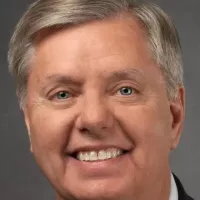Public opinion and media debates around Mohammed bin Salman—discover key moments of controversy.
Mohammed bin Salman Al Saud (MbS) is the Crown Prince and Prime Minister of Saudi Arabia, effectively the de facto ruler. As the heir apparent and son of King Salman, he is positioned to become the next King. His leadership is characterized by significant social and economic reforms under the Vision 2030 plan, alongside a more assertive foreign policy. He has been lauded for modernizing aspects of Saudi society while also facing criticism regarding his human rights record and involvement in events such as the Yemen war and the Khashoggi killing.
2011: Yemeni Uprising
In 2011, Yemen experienced an uprising that led to multilateral efforts towards a political settlement, which were later disrupted by the Houthi takeover in 2015.
2014: Alleged Plan to Kill King Abdullah
In 2014, according to Saad al-Jabri, Mohammed bin Salman allegedly mentioned a plan to Interior Minister Muhammad bin Nayef Al Saud to kill King Abdullah, which would allow Mohammed's father to take the throne.
March 2015: Military intervention in Yemen begins
In March 2015, Saudi Arabia, led by Mohammed bin Salman as minister of defense, began a military intervention in Yemen against the Houthi rebels, launching air strikes and imposing a naval blockade.
December 2015: Announcement of Anti-Terrorist Military Alliance
In December 2015, Mohammed bin Salman announced an anti-terrorist military alliance of Islamic countries, with some countries involved stating they had not been consulted.
2015: Start of Famine in Yemen
From 2015 to May 2019, approximately 85,000 children died in Yemen, and it is said that the famine in Yemen is the direct result of the Saudi-led intervention and blockade of the rebel-held area.
2015: Saudi-Led Intervention in Yemen
In 2015, Mohammed bin Salman led the Saudi-led intervention in Yemen against the Houthi rebels, who seized Sana'a and ousted the Saudi-backed Hadi government, ending multilateral efforts towards a political settlement following the 2011 Yemeni uprising.
2015: Arrest of Israa al-Ghomgham
In 2015, human rights activist Israa al-Ghomgham and her husband were arrested, later facing the threat of beheading. Human Rights Watch warned that the al-Ghomgham case set a "dangerous precedent" for other women activists currently detained.
January 2016: German Intelligence Agency's Assessment of Mohammed bin Salman
On 10 January 2016, The Independent reported that the BND, the German intelligence agency, portrayed Saudi defence minister and Deputy Crown Prince Mohammed bin Salman as a political gambler who is destabilising the Arab world through proxy wars in Yemen and Syria.
August 2016: Meeting with Donald Trump Jr.
In August 2016, Donald Trump Jr., the son of US presidential candidate Donald Trump, had a meeting with an envoy representing Mohammed bin Salman and the crown prince of Abu Dhabi, Mohammed bin Zayed. The envoy offered help to the Trump campaign.
May 2017: Launch of Anti-Corruption Campaign
In May 2017, Mohammed bin Salman launched a purge against competing Saudi business and political elites in an anti-corruption campaign.
June 2017: Saudi Arabia spearheads diplomatic crisis with Qatar
On 5 June 2017, Saudi Arabia under Mohammed spearheaded a diplomatic crisis with Qatar together with the United Arab Emirates, Bahrain and Egypt, with the countries severing diplomatic relations with Qatar and effectively imposing a blockade on the country.
September 2017: Arrests of Human Rights Activists
In September 2017, amidst a wave of arrests, Abdulaziz al-Shubaily, Mustafa al-Hassan, and Essam al-Zamel were among those detained.
October 2017: Aim to Return to Moderate Islam
In October 2017, Mohammed said that the ultra-conservative Saudi state had not been "normal" for the past 30 years, blaming rigid doctrines that had governed society in reaction to the Iranian Revolution. He aimed to have Saudi Arabia start "returning to what we were before—a country of moderate Islam that is open to all religions and to the world".
November 2017: Saad Hariri forced to resign
In November 2017, Mohammed forced Lebanese prime minister Saad Hariri to resign when he visited Saudi Arabia, believing that Hariri was influenced by Iran-backed Hezbollah.
December 2017: Airstrikes Following Houthi Missile Attack
Following a Houthi missile attack against Riyadh in December 2017, which was intercepted by Saudi air defence, airstrikes killed 136 Yemeni civilians and injured 87 others in eleven days.
December 2017: Criticism of US Decision on Jerusalem
In December 2017, Mohammed bin Salman criticised the United States' decision to recognise Jerusalem as the capital of Israel.
2017: Saudi Arabia Provided Weapons to Syrian Opposition Groups
In 2017 it was reported that Saudi Arabia provided weapons to Syrian opposition groups, fighting against the Assad regime, which then ended up in the hands of Islamic State members.
May 2018: Bezos' phone was allegedly hacked via WhatsApp
In May 2018, Bezos' phone was allegedly hacked by a multimedia message sent from Mohammed's WhatsApp account, after which the phone begun transmitting dramatically higher amounts of data.
June 2018: Arrests of Women's Rights Activists
Ahead of the lifting of the ban on women driving in June 2018, 17 women's rights activists were arrested, including Loujain al-Hathloul. Eight of the 17 were subsequently released. Hatoon al-Fassi was arrested shortly afterwards.
August 2018: Report claims Tillerson stopped Saudi-Emirati plan to invade Qatar
In August 2018, a report by The Intercept cited unnamed sources claiming that former US secretary of state Rex Tillerson had in June 2017 intervened to stop a Saudi-Emirati plan to invade Qatar, resulting in increased pressure from Saudi Arabia and the UAE for his removal from office.
August 2018: United Nations Report on Human Rights Violations in Yemen
In August 2018, the United Nations reported that all parties in the conflict in Yemen were responsible for human rights violations and for actions which could be considered war crimes.
August 2018: Saudi Arabia expels Canada's ambassador and freezes trade
In response to Canada's criticism of the arrest of Samar Badawi on 2 August 2018, Saudi Arabia expelled Canada's ambassador and froze trade with Canada.
October 2018: UN Warning of Starvation Risk in Yemen
In October 2018, Lise Grande, the United Nations Humanitarian Coordinator for Yemen, warned that 12 to 13 million Yemenis were at risk of starvation if the war continued for another three months.
October 2018: Jamal Khashoggi goes missing
In October 2018, Saudi journalist Jamal Khashoggi, a critic of Mohammed, went missing after entering the Saudi consulate in Istanbul. Turkish officials reportedly believe that Khashoggi was murdered at the consulate.
November 2018: Message from Mohammed to Bezos includes image
In November 2018, a message from Mohammed to Bezos includes an image resembling the woman Bezos was having an affair with, despite the affair not being public knowledge at the time.
November 2018: CIA Concludes Mohammed Ordered Khashoggi's Murder
In November 2018, the Central Intelligence Agency (CIA) concluded with "high confidence" that Mohammed ordered Khashoggi's murder. This conclusion was based on evidence including an intercepted conversation where Mohammed's brother Khalid assured Khashoggi it was safe to enter the Saudi consulate in Istanbul, reportedly at Mohammed's direction. The CIA believed the killing was motivated by Mohammed's belief that Khashoggi was an Islamist with problematic connections to the Muslim Brotherhood.
December 2018: US Senators Briefed on Khashoggi Murder, UN Calls for Investigation
In December 2018, US senators were briefed by the CIA director on the Khashoggi murder, leading them to believe Mohammed played a major role. Senator Lindsey Graham stated Mohammed was "intrinsically involved" in Khashoggi's demise. Senator Bob Corker said that the prince "ordered, monitored, the killing" and "If he were in front of a jury, he would be convicted of murder in about 30 minutes." Also in December 2018, the UN Human Rights chief requested an international investigation to find who was behind the assassination.
December 2018: Mohammed Denies Knowledge of Khashoggi Murder in Advance
In December 2018, in a PBS documentary, Mohammed took responsibility for the killing of Khashoggi since it happened under his watch but he denied any knowledge of the murder in advance.
2018: Jamal Khashoggi's Murder
In 2018, Jamal Khashoggi was murdered, which led to Joe Biden describing Mohammed as a pariah in 2019.
2018: Mohammed bin Salman's Desire to Maintain US Military Presence in Syria
In 2018, Mohammed bin Salman reportedly wanted the US military presence to maintain in Syria, despite Donald Trump's declaring the withdrawal of American forces from the war-torn country.
2018: Support for a Jewish Homeland of Israel
In 2018, Mohammed bin Salman voiced his support for a Jewish homeland of Israel, the first time that a senior Saudi royal has expressed such sentiments publicly.
January 2019: Completion of Anti-Corruption Committee's Work
In January 2019, the Anti-Corruption Committee's work was declared complete, with as many as 500 people rounded up. Saudi Arabian banks froze over 2,000 domestic accounts, targeting up to $800 billion in cash and assets.
February 2019: Mohammed bin Salman defends China's policies in Xinjiang
In February 2019, Mohammed defended China's policies in Xinjiang, where more than 1 million Uyghurs were put into internment camps, saying "China has the right to carry out anti-terrorism and de-extremisation work for its national security.".
February 2019: Text from Mohammed to Bezos
In February 2019, a text from Mohammed to Bezos urges Bezos not to believe everything, after Bezos was briefed on the phone regarding an Internet campaign against him conducted by Saudis.
March 2019: Allegations of Saudi Arabia hacking Jeff Bezos's phone
In March 2019, Gavin de Becker, a security specialist working for Jeff Bezos, accused Saudi Arabia of hacking Bezos's phone.
March 2019: US Senators Accuse Saudi Arabia of Human Rights Violations
In March 2019, US senators accused Saudi Arabia for repetitive misdeeds and criticized Mohammed, saying he has gone "full gangster". The senators stated that the list of human rights violations by Saudi Arabia is too long to comprehend the situation in the kingdom or even work with Mohammed.
May 2019: Child Deaths in Yemen
From 2015 to May 2019 the number of total deaths of children is said to be approximately 85,000 due to the famine in Yemen, directly resulting from the Saudi-led intervention and blockade of the rebel-held area.
June 2019: The Guardian Claims Hacking Attempts by Saudi Cybersecurity Subdivision
In June 2019, The Guardian reported that after Khashoggi's assassination, the media group became a target of hacking attempts by a Saudi cybersecurity subdivision, as per an internal order document.
June 2019: UN Report Links Mohammed to Khashoggi Assassination
In June 2019, a UN report titled "Annex to the Report of the Special Rapporteur on extrajudicial, summary or arbitrary executions: Investigation into the unlawful death of Mr. Jamal Khashoggi" linked Mohammed to the assassination.
August 2019: Offer to Loujain al-Hathloul for conditional release
In August 2019, Loujain al-Hathloul's brother Walid informed the media that his sister was offered release on the condition that she deny the human rights abuses committed against her in Saudi prison. Loujain refused the offer.
September 2019: Condemnation of Netanyahu's Plans to Annex Jordan Valley
In September 2019, Mohammed bin Salman condemned Israeli Prime Minister Benjamin Netanyahu's plans to annex the eastern portion of the West Bank known as the Jordan Valley.
September 2019: Mohammed Takes Full Responsibility for Khashoggi Killing
In September 2019, Mohammed denied any personal involvement in the Khashoggi killing in an interview with CBS' 60 Minutes, but said that he had to take "full responsibility for what happened".
2019: Joe Biden criticizes Mohammed bin Salman
In 2019, during the Trump administration, Joe Biden criticized Mohammed bin Salman, describing him as a pariah due to the 2018 killing of Jamal Khashoggi.
January 2020: Results of FTI Consulting's Forensic Investigation of Bezos' Phone Made Public
In January 2020, the results of FTI Consulting's forensic investigation of Bezos' phone were made public, concluding with "medium to high confidence" that Bezos' phone was hacked by a multimedia message sent in May 2018 from Mohammed's WhatsApp account.
March 2020: Saudi government detains Omar and Sarah, the children of Saad al-Jabri
In March 2020, the Saudi government detained Omar and Sarah, Saad al-Jabri's children.
March 2020: Arrest of Muhammad bin Nayef
On 6 March 2020, Muhammad bin Nayef was arrested, along with his half-brother Nawwaf bin Nayef and King Salman's brother Ahmed bin Abdulaziz. The three princes were charged with treason.
July 2020: US Senators Urge Trump to Secure Freedom of al-Jabri's Children
On 9 July 2020, four United States senators urged President Trump to secure the freedom of Saad al-Jabri's children Omar and Sarah.
September 2020: Mohammed bin Salman served lawsuit via WhatsApp
Documents filed to the court revealed that on 22 September 2020, Mohammed was served the lawsuit at 4:05 p.m. ET via WhatsApp.
2020: Meeting with Netanyahu and Yosi Cohen in Neom
In 2020, Mohammed bin Salman met with Benjamin Netanyahu and Israeli head of the Mossad Yosi Cohen in Neom.
February 2021: US Intelligence Report States Mohammed Approved Khashoggi Operation
On February 25, 2021, the Office of the Director of National Intelligence released a declassified report which stated that Saudi Arabia's Crown Prince Muhammad bin Salman approved an operation in Istanbul, Turkey to capture or kill Saudi journalist Jamal Khashoggi.
February 2021: UN Special Rapporteur Urges Sanctions Against Crown Prince
On February 26, 2021, the United Nations Special Rapporteur on extrajudicial, summary or arbitrary executions Agnès Callamard released a statement urging the United States Government to impose sanctions against the Crown Prince, targeting his personal assets and international engagements.
April 2021: Criticism of Wahhabi Doctrines
In April 2021, Mohammed bin Salman criticized Saudi religious leaders' devotion to Wahhabi doctrines during a televised interview, stating that there are no fixed schools of thought and fatwas should be based on the time, place, and mindset in which they are issued.
September 2021: Jake Sullivan meets with Mohammed bin Salman
In September 2021, Biden's national security adviser Jake Sullivan met with Mohammed bin Salman, during which Mohammed reportedly shouted at Sullivan after he raised the killing of Khashoggi.
2021: Codification of Saudi Laws
As of early 2021, Mohammed ordered a codification of Saudi laws to end the power of individual Wahhabi judges' interpretations of Sharia. Many conservative clerics were allegedly intimidated into supporting the government line on issues like opening cinemas and mass layoffs of Wahhabi imams.
2021: Saad al-Jabri's Allegations Against Mohammed bin Salman
In 2021, the former Saudi intelligence official Saad al-Jabri said in an interview with CBS that Mohammed bin Salman mentioned to Interior Minister Muhammad bin Nayef Al Saud plans to kill King Abdullah in 2014.
October 2022: US Accusation of Saudi Arabia Coercing Oil Production Cuts
In October 2022, US National Security Council spokesman John Kirby accused Saudi Arabia of coercing other oil-producing countries to agree to oil production cuts, knowing it would increase Russian revenues and blunt the effectiveness of sanctions.
November 2022: Mohammed Receives US Immunity Over Khashoggi's Murder
In November 2022, due to his new role as the Saudi prime minister, Mohammed received US immunity over Khashoggi's murder. However, Biden's administration emphasized that this was not a determination of innocence.
2022: Report of Mohammed Beating His Wife
In 2022, The Economist reported that on at least one occasion, Mohammed beat Sara so severely that she required medical treatment.
2022: OPEC+ Announces Cut in Oil Production
In 2022, relations between the United States and Saudi Arabia became strained after OPEC+ announced a cut in oil production by two million barrels a day. The US government accused Saudi Arabia of siding with Russia in its war against Ukraine, which the Saudi government denied.
January 2024: Comments on the Palestinian Issue
Amid the Gaza war, in January 2024, Mohammed told U.S. Secretary of State Antony Blinken that he was open to Saudi normalization with Israel, adding, "Do I care personally about the Palestinian issue? I don't, but my people do."
August 2024: Concerns of Assassination
In August 2024, Mohammad discussed his fears of facing assassination due to his support for establishing and normalizing Saudi-Israel ties, and the threats he received.
September 2024: Saudi Arabia Will Not Normalize Relations with Israel Until Palestine is Recognized as a State
Following the events in Gaza and Israel's attacks in Lebanon and Syria on 17 and 18 September 2024, Mohammad declared during the annual address to the Shura Council on 19 September 2024, that Saudi Arabia would not normalize relations with Israel until Palestine is recognized as a state with East Jerusalem as its capital.
2024: Scaling Back of Neom Project
In 2024, it was reported that the Neom project had been substantially scaled back from its original plan. An internal audit found extensive problems, including evidence of deliberate manipulation by the project's managers.
2025: New Contracts for Neom Dried Up
By 2025, new contracts for Neom dried up and there was no mention of Neom in Saudi Arabia's pre-budget statement for 2026.
2026: No Mention of Neom in Saudi Arabia's Pre-Budget Statement
By 2025, new contracts for Neom dried up and there was no mention of Neom in Saudi Arabia's pre-budget statement for 2026.
Mentioned in this timeline

WhatsApp is a widely-used instant messaging and VoIP service owned...

Donald John Trump is an American politician media personality and...

Jeff Bezos is an American businessman renowned as the founder...

Vladimir Vladimirovich Putin is a Russian politician and former intelligence...
Ukraine is a large country in Eastern Europe second in...

Lindsey Graham is an American politician and attorney currently serving...
Trending

10 months ago Carlos Alcaraz Withdraws from Barcelona Open; Faces Tough Draw with Tsitsipas, De Minaur

2 months ago Wesley Sneijder predicts Kylian Mbappé to win Ballon d'Or in upcoming year.

8 months ago Steven Adams secures a 3-year, $39M extension with the Houston Rockets.
3 months ago McDonald's Employee Shoots Customer After Argument Over Delayed Order in Florida.

3 months ago Spoelstra regrets Ware decision after Heat loss; Knecht as superstar solution?

8 months ago Polio Eradication Efforts Intensify in Pakistan: Focus on Women Heroes and Campaigns
Popular

Thomas Douglas Homan is an American law enforcement officer who...

William Franklin Graham III commonly known as Franklin Graham is...

Jupiter is the fifth and largest planet from the Sun...

XXXTentacion born Jahseh Dwayne Ricardo Onfroy was a controversial yet...

Kristi Noem is an American politician who has served as...

Instagram is a photo and video-sharing social networking service owned...